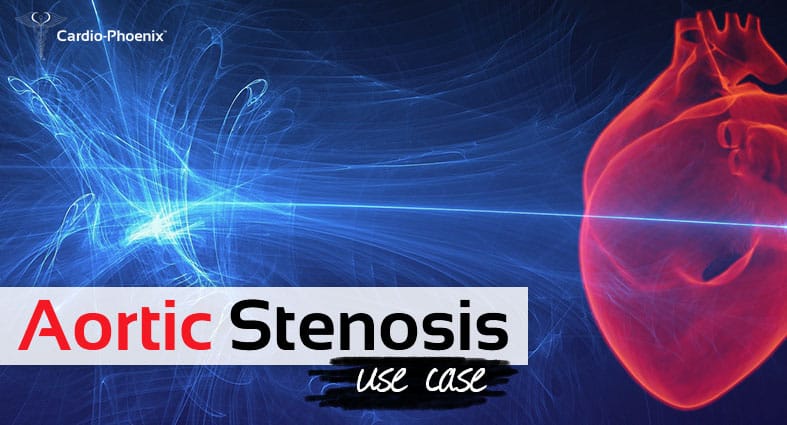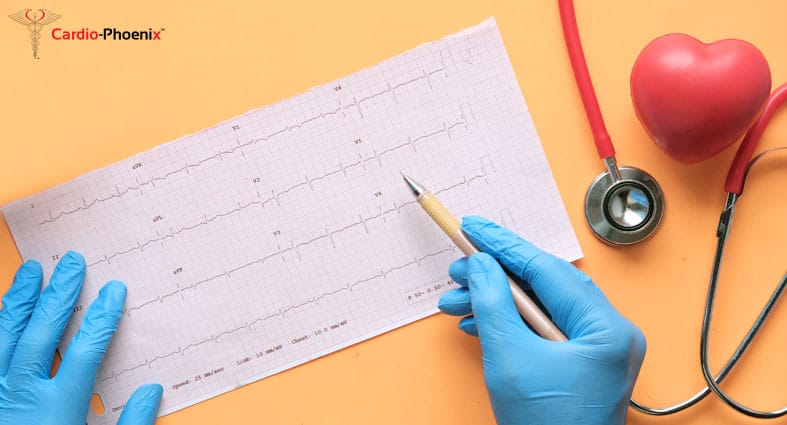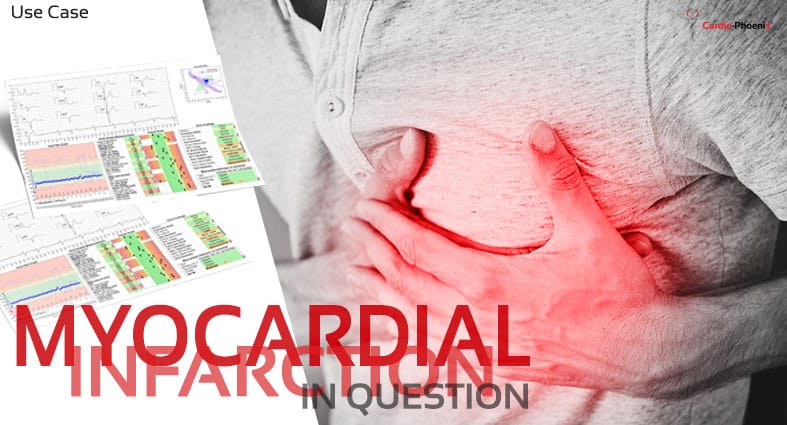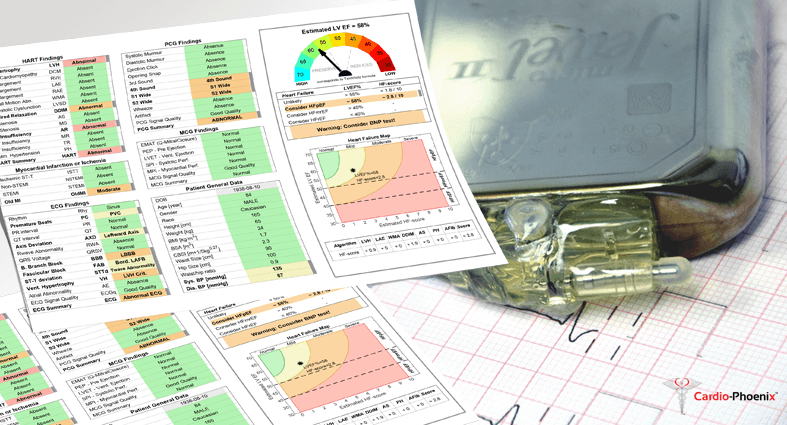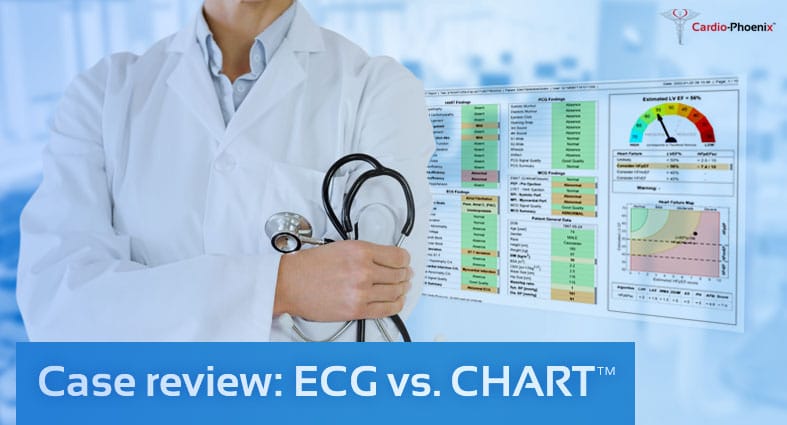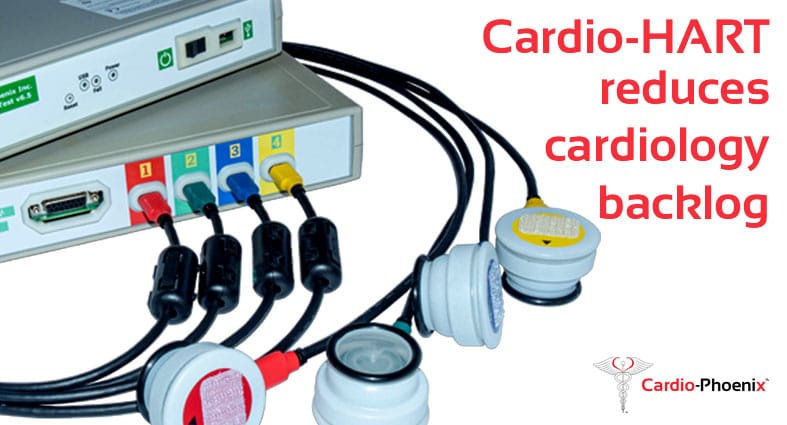Real-World Use Cases
Abnormal ECG confirmed by HFmrEF prediction by HART-finding

Situation Symptomatic female patient of 59 years, 153cm, 60kg, recorded with CHART in heart failure clinic to discover type and severity of the heart failure. Clinical Information: Type 2 diabetes NIT, ischemic cardiomyopathy with low LVEF, AF Comorbidities. Allergic rhinitis; Left shoulder surgery; Covid19 Disease Modifying Pharmacological Therapy Sacubril/Valsartan 24/26 mg in the morning and…
ECG shows false negative LVH, but LVH detected by HART-finding

Situation A symptomatic female patient of 71 years, 161cm, 55kg, was recorded with CHART in primary care because cardiovascular disease is suspected by symptoms. CHART Report Interpretation Risk Assessment • 71-year-old, skinny BMI = 21kg/m2, • No other information HART-Findings and HF prediction Abnormal HART summary: • Abnormal LV hypertrophy •…
Aortic Stenosis Detected by HART, but Normal ECG

Situation A symptomatic female patient of 72 years, 152cm, 76kg, was recorded with CHART in primary care because cardiovascular disease is suspected by symptoms. CHART Report Interpretation Risk Assessment • 72 year, BMI = 33kg/m2, normal blood pressure 125/80 • No alcohol, no smoke, no allergies, • take more medications. HART-Findings…
An Inconclusive ECG

Situation 83-year-old female patient with a stressful life, glucose=8.00mmol/L, symptomatic (fatigue, sleep problems), and got CHART test in primary care. CHART report interpretation Risk Assessment The systolic blood pressure is slightly elevated (140/80 mmHg). Family history of cardiovascular disease. ECG The ECG interpretation is borderline, with only first-degree AV-block by prolonged…
Myocardial infarction in question

Situation A 54-year-old male patient has a previous (a month earlier) normal ECG, and the physician did not diagnose any problem. CHART test is done currently, which shows a different picture. CHART report interpretation Risk Assessment The blood pressure is high: 160/100. Otherwise no other cardiac-related risks. HART-findings and HF prediction HART-findings…
Pacemaker patient assessment with CHART

Situation Female patient with a previous history of carcinoma and mildly decreased systolic function due to cardiotoxicity. She had a previous heart trauma and a dual chamber pacemaker implanted for sick sinus syndrome. Back for control, where a Cardio-HART (CHART) test is performed before Transthoracic Echocardiogram. CHART report interpretation Risk Assessment The patient…
Improving early identification of cardiovascular problems at the point-of-care

Background Patient 00 has an artificial valve or prosthesis. The patient is under cardiology observation. However, the next cardiology appointment is 6 months out. The patient had mild chest discomfort and was worried as the prosthesis was relatively new. For the record, neither the ECG nor the CHART detected the prosthesis. ECG…
Breakthrough Cardiac Diagnostic device reduces wait-times and backlog

As we cautiously emerge from the grips of the pandemic, so too heart disease is re-emerging as the leading cause of disease burden in England. Numerous studies and research articles bear witness to what will undoubtedly be COVID-19’s ongoing legacy, an increase in heart disease of epidemic proportion, to regain the crown as the #1…



